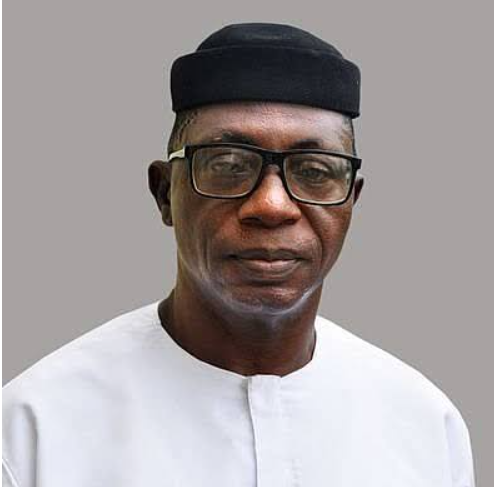By Dr. Olusanya Awosan
IN RECENT years, Nigeria has faced significant economic challenges, with a majority of its citizens grappling with hardship and uncertainty.
Despite these pressing issues, the political class appears largely detached from the struggles of the populace.
Instead of demonstrating empathy and concern for the welfare of the people, politicians engage in partisan bickering and power struggles, prioritizing their ambitions over the needs of the citizens they are meant to serve.
This situation raises critical questions about the role of the political class in nation-building and the welfare of the people.
The current political landscape in Nigeria is characterized by a troubling trend: politicians seem to unite only when it comes to sharing the nation’s resources among themselves.
In the corridors of power, there is a palpable camaraderie, but this unity dissipates when the focus shifts to the welfare of the citizens.
The ongoing political rivalry, especially in the lead-up to the 2027 elections, is marked by divisive rhetoric and a lack of constructive dialogue aimed at alleviating the suffering of the populace.
Instead of proposing solutions to the economic challenges facing the nation, political actors seem more concerned with consolidating their power and influence.
This self-serving behavior is not unique to Nigeria; it is a phenomenon observed in many nations where political elites prioritize their interests over those of the people.
However, there are examples of countries where political classes, despite their ideological differences, have demonstrated a commitment to the common good.
One such example is the Scandinavian countries, where political parties across the spectrum engage in constructive dialogue and collaboration to address social welfare issues.
In these nations, the political class is largely focused on policies that promote equality, healthcare, education, and social security, resulting in high standards of living and overall societal well-being.
The commitment of the political class to the welfare of the people is crucial for nation-building.
A people-oriented political class fosters an environment where citizens feel valued and heard, leading to increased trust in government institutions.
When politicians prioritize the needs of their constituents, they create policies that uplift communities, reduce poverty, and promote sustainable development.
This, in turn, leads to a more stable and prosperous society, where citizens can thrive and contribute to the nation’s growth.
In Nigeria, the lack of empathy and concern from the political class is a call to action for the citizens.
It is imperative for the populace to awaken to the reality that their interests are often sidelined in the political arena.
Citizens must unite across ideological lines to demand accountability and transparency from their leaders.
This collective consciousness can serve as a powerful force for change, compelling politicians to prioritize the welfare of the people over their personal ambitions.
To achieve this, citizens should engage in active political participation, hold their leaders accountable, and advocate for policies that address the root causes of poverty and inequality.
Grassroots movements, civil society organizations, and community leaders can play a pivotal role in mobilizing the populace and fostering a culture of civic engagement.
By demanding a political class that is genuinely committed to the welfare of the people, Nigerians can work towards a future where governance is centered on the needs and aspirations of the citizenry.
In conclusion, the current state of Nigerian politics reflects a troubling disconnect between the political class and the people.
The focus on power struggles and partisan bickering undermines the potential for meaningful progress and development.
However, by fostering a collective consciousness and demanding a people-oriented political class, citizens can pave the way for a more equitable and prosperous Nigeria.
The Bible offers a stern warning against self-centered leadership and a lack of concern for the welfare of others.
In Ezekiel 34:2-4, God condemns the shepherds of Israel for feeding themselves while neglecting their flock, stating, “Woe to the shepherds of Israel who only take care of themselves!
Should not shepherds take care of the flock? You eat the curds, clothe yourselves with the wool and slaughter the choice animals, but you do not take care of the flock.”
This scripture serves as a powerful reminder that leaders are called to serve their people, not exploit them.
It is time for the citizens of Nigeria to rise *together, united in their quest for a system where politicians from all divides prioritize their welfare and work tirelessly with commitments for the betterment of all.
Dr. Olusanya Awosan, Apostle & Coordinator, Nehemiah Movement, writes from Lagos.





